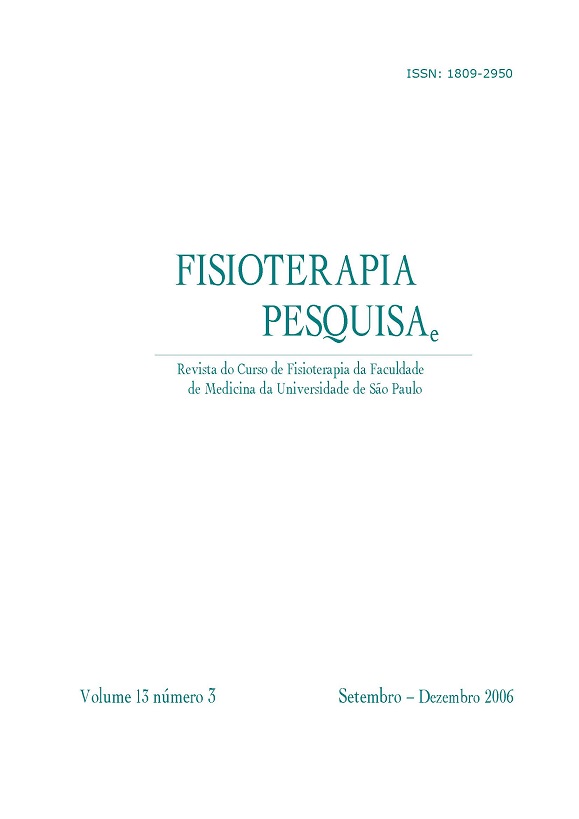Effects of a kinesiotherapy and aquatic physiotherapy program onto the neuropsychomotor development of a patient with Prader-Willi syndrome
DOI:
https://doi.org/10.1590/fpusp.v13i3.76315Keywords:
aquatic physiotherapy, kinesiotherapy, neuropsychomotor development, Prader-Willi syndrome.Abstract
The Prader-Willi syndrome (PWS) is a complex, multisystem genetic disorder in chromosome 15, characterized mostly by muscular hypotonia, obesity, neuropsychomotor development delay, hypogenitalism, hypogonadism, and short stature. This article reports on the effects of an eight-month physical therapy program (on soil and in water) onto the neuropsychomotor development of a PWS patient aged 1 year and 4 months at program onset. The child was evaluated before and at the end of the program by the Functional Activities Scale of Durigon et al. (1996). At the end of eight months, the child was able to adopt postures (such as sitting and standing) which she couldn't before, and to perform dynamic activities such as rolling and turning round with greater motor variability, as well as functionally crawling and walking. The child became more independent in daily life activities, showing that the kinesio and aquatic physical therapy program proposed was effective in promoting her neuropsychomotor development.Downloads
Download data is not yet available.
Downloads
Published
2006-12-31
Issue
Section
Case Reports
How to Cite
Effects of a kinesiotherapy and aquatic physiotherapy program onto the neuropsychomotor development of a patient with Prader-Willi syndrome. (2006). Fisioterapia E Pesquisa, 13(3), 67-75. https://doi.org/10.1590/fpusp.v13i3.76315



